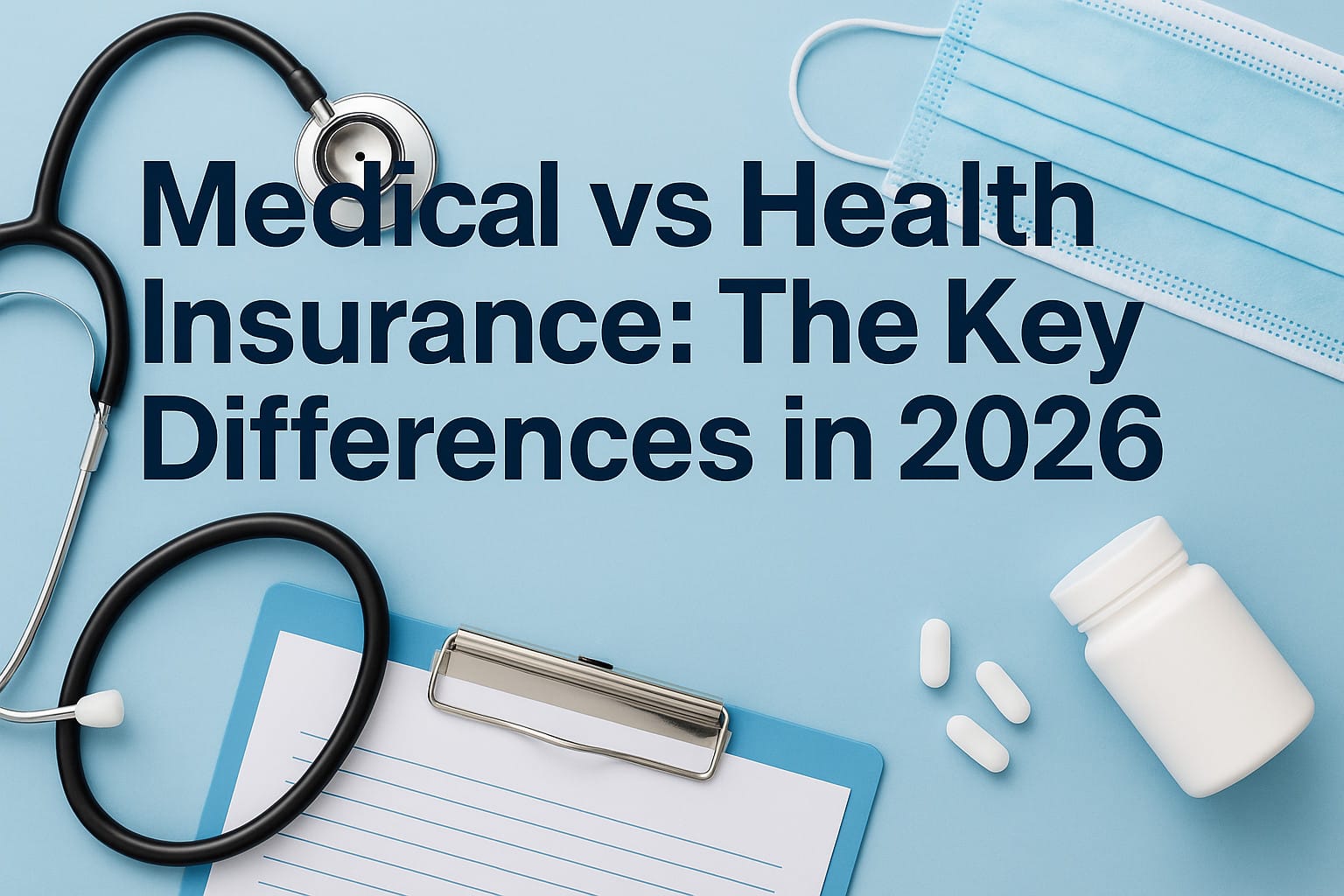Life is full of surprises, and medical emergencies are one of them. Medical treatment in the UAE can be really expensive, so getting the right health insurance is very important to help cover these costs. Health insurance in the UAE is important because it helps you pay for medical care and protects you financially. There are many health insurance companies in the UAE, which can make choosing one confusing and difficult. The complex words in the policy can also make it harder to understand.
Whether you live in the UAE or are an expat, knowing what to look for when buying health insurance can help you avoid unexpected costs and make sure you have the right health coverage in UAE. In this article, we’ll explain some important things you should consider checking with your health insurance provider before buying health insurance in the UAE. By the end, you will be equipped with all the important information that will help you navigate the health insurance maze in UAE.
Here’s what you should check with your health insurance provider before buying health insurance in the UAE
1. Coverage details:
Before purchasing any health insurance policy in the UAE, it’s important to understand what the policy covers thoroughly. Here are some key aspects that you should consider looking out for while buying:
- Expense coverage: Check if the policy will cover your medical expenses to protect you from high healthcare costs.
- Range of services: Make sure the policy covers various medical services, including doctor visits, tests, hospital stays, surgeries, and medications.
- Healthcare access: Verify that the policy gives you access to a good network of hospitals and doctors for quality care when needed.
- Emergency coverage: Confirm that the policy provides coverage in case of emergencies, so you’re protected during unexpected health issues.
- Preventive health measures: Look for plans that include coverage for preventive care, like vaccinations and health check-ups, to help you stay healthy and avoid illnesses.
- Access to specialists: Make sure the policy allows you to see specialists for specific health problems so you can receive the right treatment.
- Medication costs: Check if the policy covers the cost of prescription medications to make them more affordable.
- Maternity benefits: If you plan to have a baby, ensure the policy covers maternity care, including pregnancy, childbirth, and newborn care.
- Mental health services: Look out for plans that include coverage for mental health services to get the support and treatment you need for mental well-being.
2. What’s not covered:
Every health insurance policy in UAE has things it doesn’t cover. It’s important to know what’s not included so you won’t be surprised later:
- Cosmetic procedures: If you’re thinking about having plastic surgery, keep in mind that insurance won’t cover the costs. You’ll have to pay for it yourself.
- Unexpected injury or critical illness: If you get injured or sick from certain situations like self-harm, breaking the law, or doing dangerous activities, insurance won’t pay for your treatment. These situations are usually listed in the policy as not covered.
- Co-payments and deductibles: Understand the co-payment structure and deductible amounts. This is the portion of the bill you will need to pay out of pocket.
3. Cost of the premium:
The price you pay for health insurance can change a lot depending on what’s covered, your age, and your medical history. Here are some things to think about when looking at premiums:
- Balancing coverage and cost:
A low-premium policy can be good if it offers full coverage at an affordable price. But sometimes, a lower premium means less coverage. - Understand the reasons:
The best approach is to understand why the premium is lower. It should never be because of reduced coverage. - Watch for extra costs:
Also, check for extra costs like deductibles, co-payments, and sub-limits, as these can increase the cost of a claim. - Find the right balance:
So, choose a policy that gives you the right coverage without reducing your health benefits in UAE and at a premium that fits your budget.
4. Claim process:
How easy it is to make a claim is very important when picking a health insurance provider. Here’s what to look for:
- Cashless facility: A cashless claim facility means you can get treated without paying upfront because the insurance company pays the hospital directly.
- Reimbursement process: If the cashless option isn’t available, make sure the reimbursement process is simple and quick. Check what documents are needed and how long it usually takes to get your money back.
- Claim process and time: Learn how to file a claim and how long it usually takes to get your money back. It’s best if the process is simple and fast.
5. Extra benefits and add-ons:
Some health insurance providers in UAE offer extra benefits that can improve your coverage. Here are a few to think about:
- Dental and eye care: Some plans let you add dental and eye care coverage. Decide if these extra treatments are worth the extra cost.
- Wellness programs: Some insurers offer wellness programs that include yearly health check-ups, gym memberships, and discounts on fitness services.
- Telemedicine: Check to see if your policy includes telemedicine, which allows you to talk to doctors online or over the phone.
6. Reviews and reputation:
Lastly, think about the reputation of the health insurance provider:
- Customer reviews: Check what other customers say in reviews. Look for feedback on the claim process, customer service, and overall satisfaction.
- Industry ratings: Some independent groups rate health insurance companies on things like financial stability, customer service, and how well they handle claims. These ratings can help you opt for a reliable provider.
7. Customer support:
Good customer support is very important, especially with health insurance in the UAE. Here’s what you should look for:
- 24/7 support: Make sure the insurance company offers help at any time, day or night. This is especially useful in emergencies.
- Online services: See if the insurance company lets you manage your policy, pay premiums, and track claims online. This can save you time and effort.
- Reputation: Look into how well the insurance company is liked. Read reviews and ratings from other customers to see if they are happy with the service.
How to choose the right health insurance in the UAE?
Opting for the right health insurance in the UAE is a very crucial process, but not so complicated:
1. Know what you need:
- Think about your health and daily life to figure out what kind of coverage you need.
2. Compare different plans:
- You should compare different policies to see what they cover, which hospitals they include, and how much they cost.
3. Read the policy details:
- Carefully go through the policy to know what it covers, what it doesn’t, and how to make a claim.
4. Consult an expert:
- Talk to an insurance advisor to clear any doubts and pick the best option for you.
What’s the final takeaway?
Now that you know why having health insurance is important and what to look out for before buying one, picking the right health insurance in the UAE requires careful consideration of things like coverage, cost, and the provider’s reputation. By remembering these important points and researching, you can find a policy that gives you the protection you need. Always read the policy document carefully and talk to an expert if you need help making the best choice for your health and money.
Do you need to cover pre-existing conditions, or are you thinking about starting a family? Our resources on coverage for pre-existing conditions will walk you through everything you need to know. Concerned about costs? Learn how to use health insurance without money and discover strategies to manage your healthcare expenses effectively.
If convenience is key, find out how to file a cashless insurance Claim so you can focus on your health without worrying about upfront payments. And if you’re new to the UAE, our expat health insurance guide offers essential tips for getting the right coverage.
Finally, don’t forget to explore our top health insurance providers in UAE and health insurance claim process articles to ensure you’re making an informed decision. Always read the policy document carefully and talk to an expert if you need help making the best choice for your health and money.
Frequently Asked Questions (FAQs)
Q. What documents are needed for health insurance in the UAE?
The following are the documents needed:
- Photo: A picture with a white background.
- Passport Copy: A copy of the applicant’s passport.
- VISA Copy: A copy of the applicant’s visa.
- Emirates ID Application: Proof of the Emirates ID application.
- Sponsor’s Emirates ID: A copy of the sponsor’s Emirates ID.
- Sponsor’s Passport Copy: A copy of the sponsor’s passport.
- Sponsor’s Visa Copy: A copy of the sponsor’s visa.
Q. How does health insurance work in UAE?
Health insurance in the UAE must be bought from a local, approved company. It can be provided by your employer or purchased individually. The basic plan needs to cover hospital stays, emergencies, doctor visits, maternity care, tests, and prescribed exams.
Q. Is health insurance compulsory in UAE
Yes, it is compulsory. According to the health insurance laws, you should have health insurance in the UAE, whether you live there or are an expat.
Q. Can I have 2 health insurances in UAE
Yes, you can have more than one health insurance plan in UAE. The Dubai Health Authority (DHA) says there is no such limit on the number of health insurance plans a resident can have.
Q. How can I get health insurance in the UAE?
You can get health insurance by contacting a local insurance company or through a leading broker like InsuranceMarket.ae. You’ll need your passport, visa, and Emirates ID.
Q. How do I use health insurance in the UAE?
To use your health insurance, visit a hospital or clinic within your insurance network and show your insurance card or your Emirates ID to get the services covered.
Q. Can I get health insurance with a tourist visa in the UAE?
Generally, health insurance is for residents, but some companies offer short-term travel insurance for tourists.







